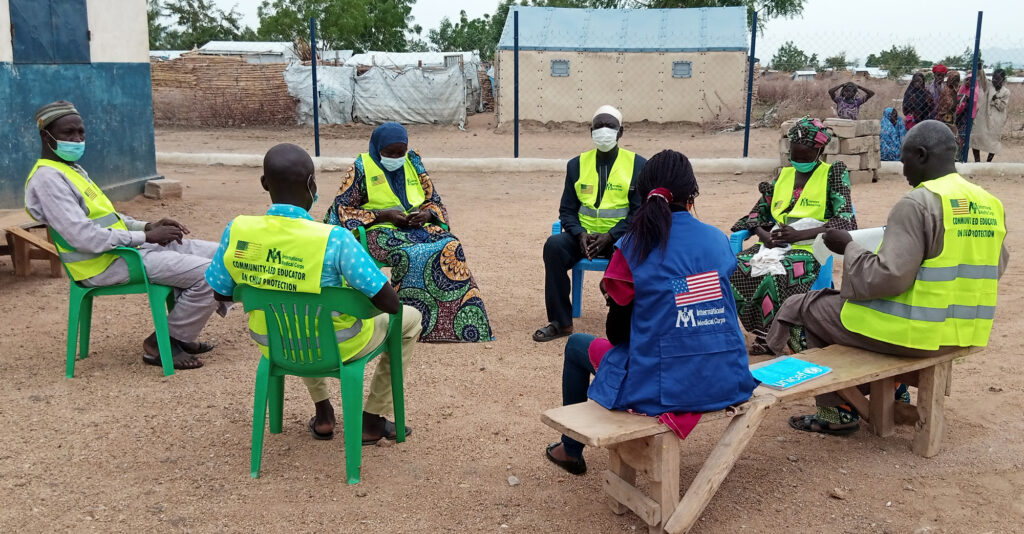International Medical Corps’ child protection (CP) team has been running activities in Cameroon’s Minawao refugee camp since 2015 to prevent child abuse and promote the rights of refugee children from Nigeria, as well as internally displaced children. The program relies on community-based CP mechanisms, in which members of the community form groups to lead activities and help their neighbors. These mechanisms include community-led educators, parent committees and adolescent clubs, and are supervised by the facilitators of our Safe Healing and Learning Spaces—which provide a place where children can learn mathematics and reading, and participate in recreational and socio-emotional activities.
After seven years of activity, these community-based groups are able to raise awareness on CP-related issues in Minawao camp, identify vulnerable children and refer them to dedicated staff for care. Through their action and commitment, they have contributed to behavior change in the camp to such an extent that violations against children have declined more in the sector where International Medical Corps provides services than in other sectors of Minawao camp.
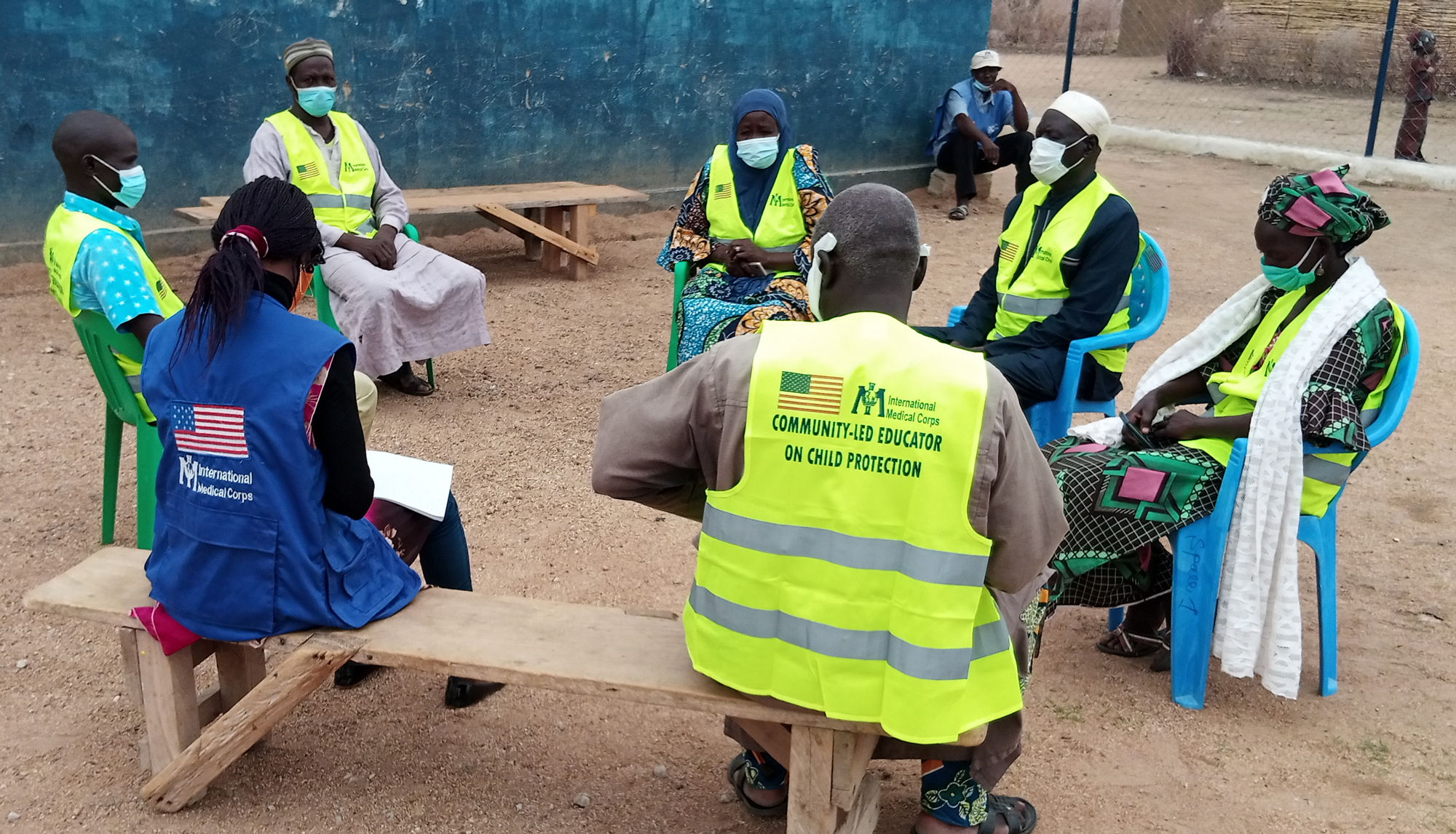
“The community-based child protection structures and daily awareness-raising activities have made it possible to strengthen protection mechanisms and the protective environment for children—as well as improve the lives of families in Minawao camp through greater social cohesion, parental responsibilities and the respect of children’s rights,” community-led educator Fatima Mohamed said.
Here’s what some of our community-led educators had to say about their work.
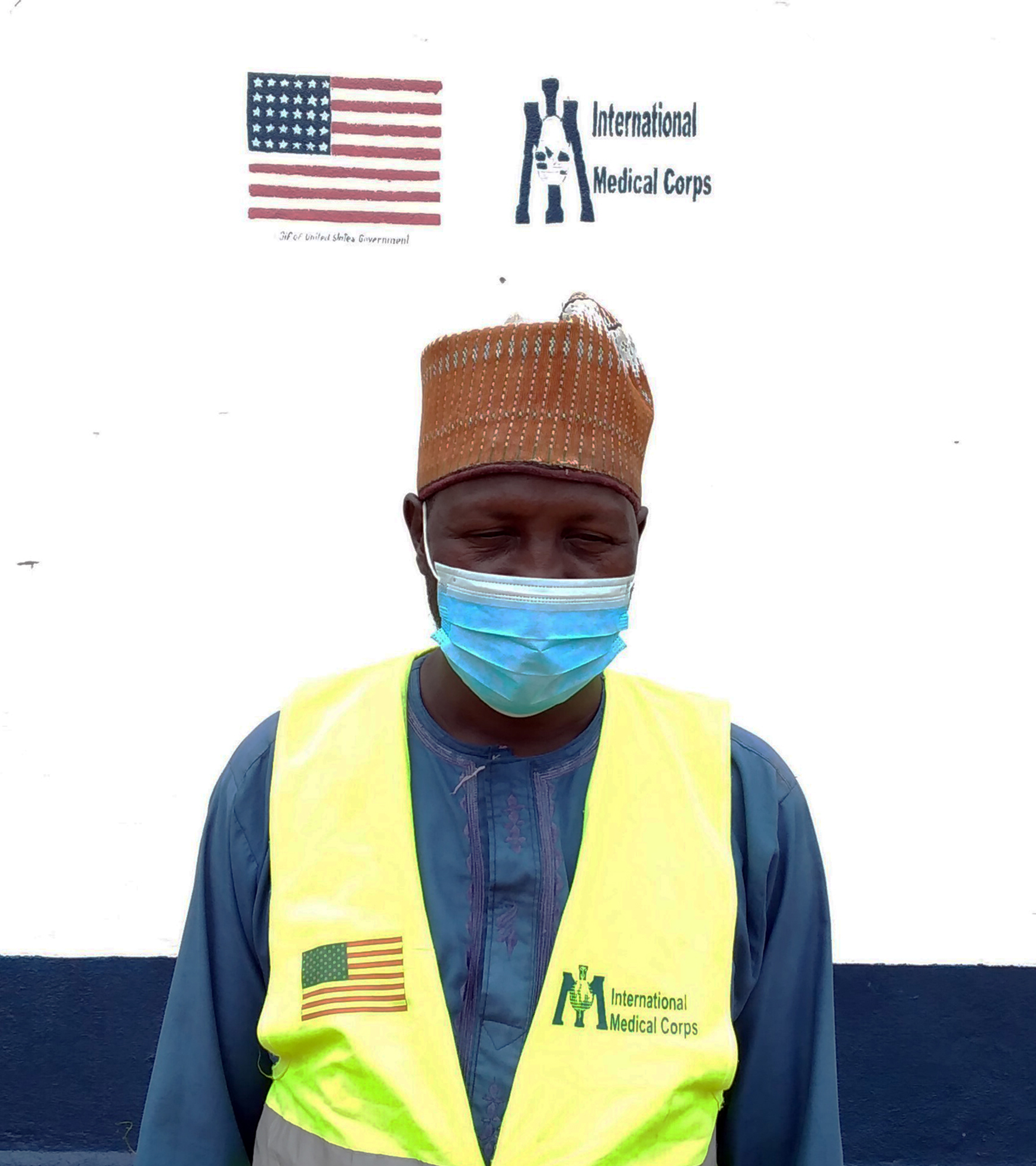
Ali Mustapha: “International Medical Corps has helped us a lot as we go into the community to talk to parents and children about the issues that affect our children in the camp. Some listen to us, and others do not. Nevertheless, we continue to do so because we have learned that the messages we share with the community are very important for children. We have heeded these messages ourselves and have seen how much the situation has changed in our homes and in some families that have had so many problems. For this, we are also congratulated and encouraged, and even if some parents insult us in the community, we accept this and continue to raise their awareness.”
Obadia Aga: “Before International Medical Corps came to the camp, we had a lot of problems with our children. They played dangerous games and played in the rivers, and every year we had a lot of children drowning. The moms did not pay any attention to what they did or where they went. Many fell ill, and the parents did not even take them to the hospital but were content to give them remedies from the street. But since International Medical Corps has taught us to identify these problems, know the consequences and sensitize our neighbors, we do this all the time on the different subjects that affect us in the community.
“Thanks to this work, we can testify that we no longer have as many problems as in the past. For example, this year we have not had any cases of drowning because each parent knows how to prevent his child from going to play in the rivers during periods of rain. Also, many girls have been enrolled in school, and we hear less and less about child marriage. I am the head of my sector, and as far as I know, it has been two years since any case of child marriage has been registered.”
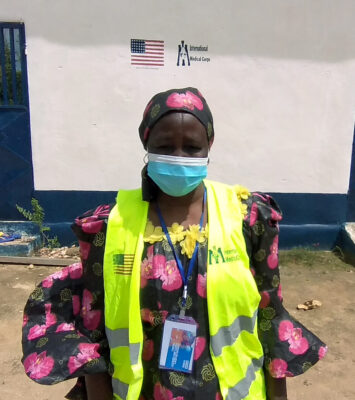
Fatima Mohamed: “International Medical Corps has done a lot for us in Minawao camp by creating this peer educator group in the community. By learning how to understand the problems that children are experiencing, we have the opportunity to educate our peers. We now understand child marriage, infant mortality, under-schooling or keeping children out of school, discrimination and all their consequences in our communities. We raise awareness every day on these subjects, and we have good results. I have 10 children, including two girls and eight boys, and I am Kanuri and Muslim. Most of my peers choose to send their daughters to be married, and even if they manage to attend school, they never go beyond primary school. Because of what I learned in the child protection program, I enrolled all 10 of my children in school. Of the 10, nine are in high school and only the last one is still in elementary school. I was persecuted when my eldest daughter turned 15 and she was going to high school. I was told she was going to become a bad girl, but I refused to listen to these people, and I continued to encourage her. Today she continues her studies at the camp and sleeps very well, and now I use my story to raise awareness among other parents. I am grateful to International Medical Corps for this strength and the important role we have.”
Rahila Ayuba: “Before being a member of the committee with International Medical Corps, we were not taking our own children seriously. We didn’t even know that what we were doing exposed our children to danger, and we didn’t know all the services available to children. But International Medical Corps trained us on these different topics, and we learned a lot. What impressed me the most was the training and awareness on non-discrimination because before understanding that it was a problem that had harmful consequences, we saw boys from all families being treated well and sent to school, while girls simply had to help us with the housework and sometimes go sell things at the market. Many of our girls fled to join their boyfriends, and others got pregnant.
But since we started to raise awareness and educate our friends and neighbors in our communities, things have really changed a lot. Now all girls go to school—and are even more numerous than the boys. We have managed to advise them to behave well in order to avoid pregnancies, and many parents help us in this endeavor.”
Samuel Pardapa: “I am a member of the group of peer educators in the community. Our role is to identify the risks and recurring problems that our children face, identify children who are vulnerable and at risk, and raise awareness among parents and even children about risky practices and good practices. We conduct educational talks between peers wherever we are, even in the church. We will refer cases to the different partners who work with children and even to the hospital in an emergency.”
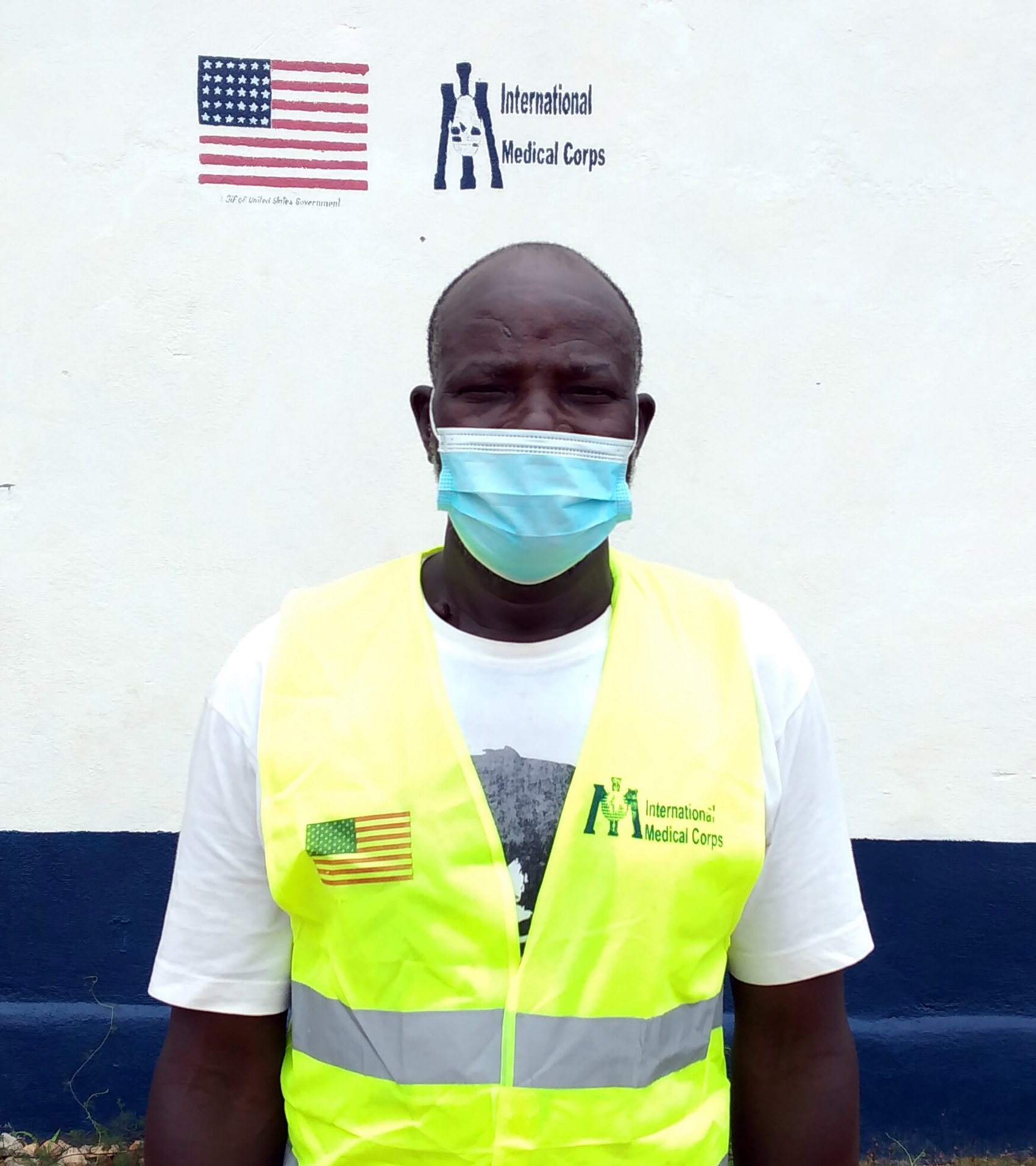
William Peter: “The initiative to create such a group is to be congratulated. I thank International Medical Corps and community leaders for setting up such a group because it is an opportunity for us to participate and contribute to the change in our communities. We got closer to our neighbors and could talk to them with confidence about problems among children and their attitudes toward children in our community, because we have good training, regular support from social workers and visibility. We are recognized as a serious group, and even though the conditions are sometimes difficult because of some people being reluctant, most listen to us with respect and make efforts to follow the advice. We received a lot of support at every meeting with social workers. Our network has also received all kinds of materials to help us be able to do the work.
“We can counsel heads of households on the impact of the decisions they make for their children when they don’t take their well-being into account. We can also make parents aware of their responsibility for their children’s actions. We’ve counseled lactating women, young girls with dangerous behaviors and parents neglecting sick or different children, and we can name many examples of situations where we have acted and things have changed for the good for these families.”
